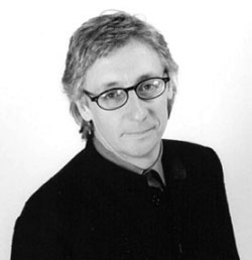Kevin Volans facts for kids
Kevin Volans (born 26 July 1949) is a talented composer and pianist who was born in South Africa and later became an Irish citizen. He studied music with famous composers like Karlheinz Stockhausen in Germany during the 1970s. He was part of a music movement called Neue Einfachheit, which means "New Simplicity."
In the late 1970s, Kevin Volans became very interested in the traditional music of his home country, South Africa. He started writing pieces that mixed African sounds with modern European music. Even though he later moved away from directly using African music, you can still hear hints of it in his work, like repeating rhythms and open musical forms. He moved to Ireland for good in 1986 and became an Irish citizen in 1994.
Contents
About His Life
Kevin Volans was born in Pietermaritzburg, South Africa, on 26 July 1949. When he was a teenager, he loved modern music and abstract art. He studied music at the University of the Witwatersrand and finished in 1972.
In 1973, he moved to Cologne, Germany. There, he was one of only five students chosen to study composition with Karlheinz Stockhausen, a very important composer. Kevin Volans learned a lot from Stockhausen and even became his teaching assistant. He also took lessons in music theatre and piano.
While in Cologne, Kevin Volans felt that the new music scene was too strict. He and other composers, like Walter Zimmermann, wanted a more open and direct style of music. This group started the "New Simplicity" movement in 1977. They wanted to use simpler sounds and even older musical ideas, which was different from the very complex music of the time.
His African Music Series
Even though Kevin Volans grew up in South Africa, he didn't have much contact with traditional African music. This was because of apartheid, a system that kept black and white cultures separate.
However, in the late 1970s, he was asked to travel around South Africa to record different kinds of traditional African music. These trips opened his eyes to the rich music and art of his homeland. He then decided to create a series of musical works that would blend African and European styles.
He wanted the African sounds to be clear at first, but as the series went on, they would slowly blend more into his own unique style. He said he wanted to create "a new music of southern Africa."
One of his most famous pieces from this series is White Man Sleeps (1982). For this piece, he used traditional African music from groups like the Venda and San people. He played these African melodies on older European instruments, giving them a new sound. A later version of this piece, recorded by the Kronos Quartet, became one of the most popular string quartet recordings ever!
Moving Towards Abstract Music
Even though his African series was very successful, Kevin Volans felt he was being labeled only as an "African" composer. He wanted to explore new ideas. In the late 1980s, he started creating a more abstract style of music. This new style was less about direct African sounds and more about pure musical ideas, like abstract art.
An important piece from this new direction is Cicada (1994) for two pianos. This music was inspired by his experience in a special art installation by James Turrell. In Cicada, he uses very slow changes in sound and rhythm, creating a calm and simple feeling. Even though you don't hear clear African melodies, the way the musical patterns fit together still shows a hidden African influence.
Kevin Volans has also explored making music with very little content, almost like a blank canvas in painting. He explained that many visual artists simplify their work, and he wanted to do the same with music. He aims to focus on small details like how loud or soft the music is, or the different sounds of instruments.
For example, his String Quartet No. 6 is actually for two string quartets playing together, creating a blending of sounds, much like the paintings of Mark Rothko. His Concerto for Double Orchestra also uses sounds that move between two groups of instruments. These pieces show how he focuses on the "edges" of sounds and small changes, making listeners pay close attention to every detail.
However, not all his music is super simple. His concertos, like the Trio Concerto (2005) and Piano Concerto No. 2 (2006), are known for being lively and showing off the musicians' skills. More recently, he has explored music where different parts play somewhat independently, creating a floating, calm sound.
A music critic named Kyle Gann said that Kevin Volans is "one of the planet's most distinctive and unpredictable voices" because he always tries new things. In 1997, the BBC Music Magazine named him one of the 50 most important living composers. His music has been celebrated with special concerts in London for his 50th, 60th, and 70th birthdays.
Teaching Music
Kevin Volans taught composition at the University of Natal in South Africa. He also worked as a composer-in-residence at Queen's University Belfast and Princeton University. Since moving to Ireland, he has greatly influenced music in the country through his teaching. One of his notable students is Jennifer Walshe.
Images for kids
 | James Van Der Zee |
 | Alma Thomas |
 | Ellis Wilson |
 | Margaret Taylor-Burroughs |



